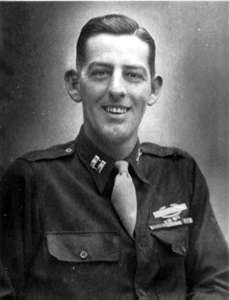Edward B. Scullion
Norfolk, Virginia
Born June 15, 1919
Captain, U.S. Army
Service Number O-1290144
Killed in Action
Died November 28, 1950 in Korea
Captain Scullion was a veteran of World War II. In Korea, he was a member of Company A, 1st Battalion, 32nd Infantry Regiment, 7th Infantry Division. He was Killed in Action while defending his position east of the Chosin Reservoir in North Korea on November 28, 1950. His remains were not recovered.
For his leadership and valor, Captain Scullion was awarded the Silver Star, the Bronze Star with Oak Leaf Cluster, the Purple Heart with 2 Oak Leaf Clusters, the Combat Infantryman’s Badge, the Korean Service Medal, the United Nations Service Medal, the National Defense Service Medal, the Korean Presidential Unit Citation, the Republic of Korea War Service Medal and the World War II Victory Medal.
Remains of Va. Soldiers Killed in Battle Are Found
The remains of two Virginia men who were killed in action while serving in the Army during the Korean War have been identified and will be returned to their families, the Defense Department announced.
The two soldiers are Captain Edward B. Scullion of Norfolk and Pfc. Elwood D. Reynolds of Schoolfield.
Reynolds’s remains are to be buried in Danville, Virginia, on April 18, 2008; Scullion’s, this summer at Arlington National Cemetery, the Defense Department said.
Reynolds was younger than 20 when he was killed. Scullion was 31.
Scullion’s daughter, Mary S. Battaglia, who lives in the Tidewater area, was 6 when her father left for Korea, and she lived most of her life without being certain where he was.
“I have known for almost 60 years that he was gone,” she said, but the identification “is a cause for celebration and a joyous thing.”
She said she wished that any attention received by the family be focused on her father and on the Defense Department and other personnel, including forensic scientists, who devoted themselves to obtaining the remains and making the identifications.
They are, she said, “extremely dedicated” and among “the best and brightest.”
The Defense POW/Missing Personnel Office said Friday that Scullion and Reynolds were members of the same company in the 32nd Infantry Regiment, which was part of the 31st Regimental Combat Team in the 7th Infantry Division.
According to the American Battle Monuments Commission’s Korean War Honor Roll Web site, Scullion was killed November 28, 1950, while defending his position east of the Chosin Reservoir in North Korea.
“He came out of his command post,” his daughter said, “to alert his troops that they were under attack” at a time when there had been no sign of opposing forces. He received “multiple wounds,” she said.
Scullion and Reynolds died in late November 1950, but “their bodies were not recovered at the time,” the Pentagon said.
In the retreat of U.S. forces, Battaglia said, her father was left on the frozen ground.
It was suspected, she said, that his body was later buried in a shallow grave.
According to the Defense Department, between 2002 and 2005, U.S. and North Korean teams led by the joint POW/MIA Accounting Command excavated three burial sites that were closely correlated with positions held by the soldiers’ unit.
Battaglia set about contacting relatives who could provide the DNA samples that officials said were needed to make identifications. Some, she said, she had not seen for many years, but “they made it so easy.”
The Korean War Project tries to find relatives of missing Korean War soldiers so they can provide DNA. Its Web site includes comments from people who knew Scullion.
“He was our company commander,” Roy D. Oxenrider wrote. “I served under his command at the Chosin Reservoir in North Korea. . . . Captain Scullion was a great Commander I had and still have the greatest respect for him.”
Scullion grew up in the Norfolk area, joined the National Guard in 1939 and, demonstrating an aptitude for leadership, eventually attended Officer Candidate School.
His lack of formal education beyond high school and the fact that he had been something of a scamp as a boy helped win the attention and respect of his troops, his daughter said.
He received a Silver Star during World War II after jumping into water under fire to pull out one of his men during a risky maneuver near a town in northern France in 1945.
Relatives said they had not known he could swim.
His daughter said she has a daughter of her own, Elizabeth Emanuel, who lives in Arlington County.
Emanuel has three children, who are Scullion’s great-grandchildren, she said.
Michael Robert Patterson was born in Arlington and is the son of a former officer of the US Army. So it was no wonder that sooner or later his interests drew him to American history and especially to American military history. Many of his articles can be found on renowned portals like the New York Times, Washingtonpost or Wikipedia.
Reviewed by: Michael Howard


